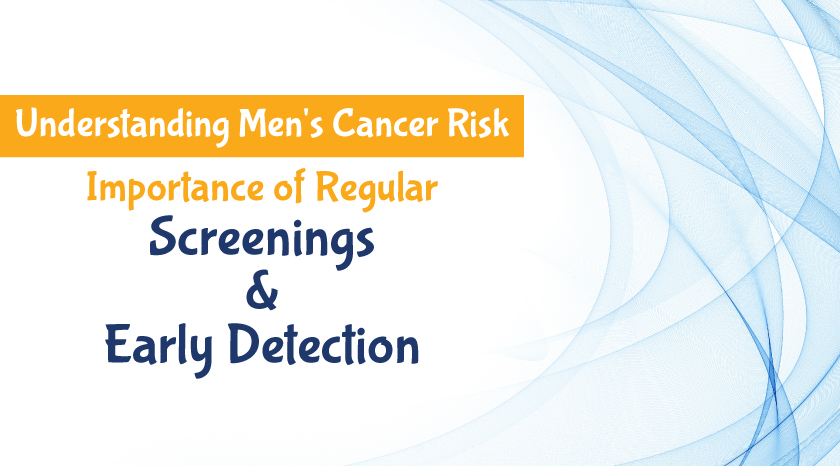Cancer remains one of the most significant health challenges worldwide, impacting millions of lives each year. While both men and women are susceptible to this disease, men face unique cancer risks that warrant attention and proactive measures. Understanding these risks and the importance of regular screenings and early detection can play a crucial role in managing cancer risk and promoting men’s health and well-being.
- Lung Cancer: Lung cancer is one of the most common cancers in men, often associated with smoking and exposure to environmental toxins such as asbestos and radon. However, non-smokers can also develop lung cancer. Symptoms may include persistent cough, chest pain, shortness of breath, and coughing up blood. Regular screenings, especially for individuals with a history of smoking or significant exposure to risk factors, can help detect lung cancer in its early stages when treatment is most effective.
- Colorectal Cancer: Colorectal cancer affects the colon or rectum and is the third most common cancer diagnosed in men. Risk factors include age, family history, inflammatory bowel disease, obesity, and a diet high in red and processed meats. Symptoms may include changes in bowel habits, rectal bleeding, abdominal pain, and unexplained weight loss. Regular screenings, such as colonoscopies, can help detect colorectal cancer early or even prevent it by identifying and removing precancerous polyps.
- Skin Cancer: Skin cancer, including melanoma and non-melanoma types such as basal cell carcinoma and squamous cell carcinoma, is more common in men than women. Risk factors include excessive sun exposure, fair skin, history of sunburns, and a family history of skin cancer. Men are often less vigilant about sun protection and may delay seeking medical attention for suspicious skin lesions. Regular skin checks by a dermatologist and self-examinations can aid in early detection and treatment of skin cancer.
- Testicular Cancer: Testicular cancer is relatively rare but most commonly diagnosed in young and middle-aged men. Risk factors include undescended testicles, family history of testicular cancer, and personal history of testicular cancer in one testicle. Symptoms may include pain or discomfort in the testicles, swelling or enlargement of the testicle, and a lump or mass in the scrotum. Testicular self-examinations and regular medical check-ups can help detect testicular cancer at an early stage when it is highly curable.
Cancer poses a significant health risk for men, with various types affecting different parts of the body. However, with awareness, education, and proactive healthcare measures, men can take steps to reduce their cancer risk and detect the disease early when treatment is most effective. Regular screenings, self-examinations, healthy lifestyle choices, and open communication with healthcare providers are essential components of cancer prevention and early detection. By prioritizing their health and well-being, men can empower themselves to take control of their cancer risk and live healthier, longer lives.




